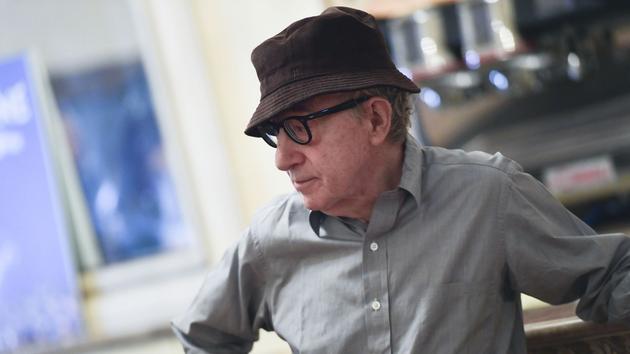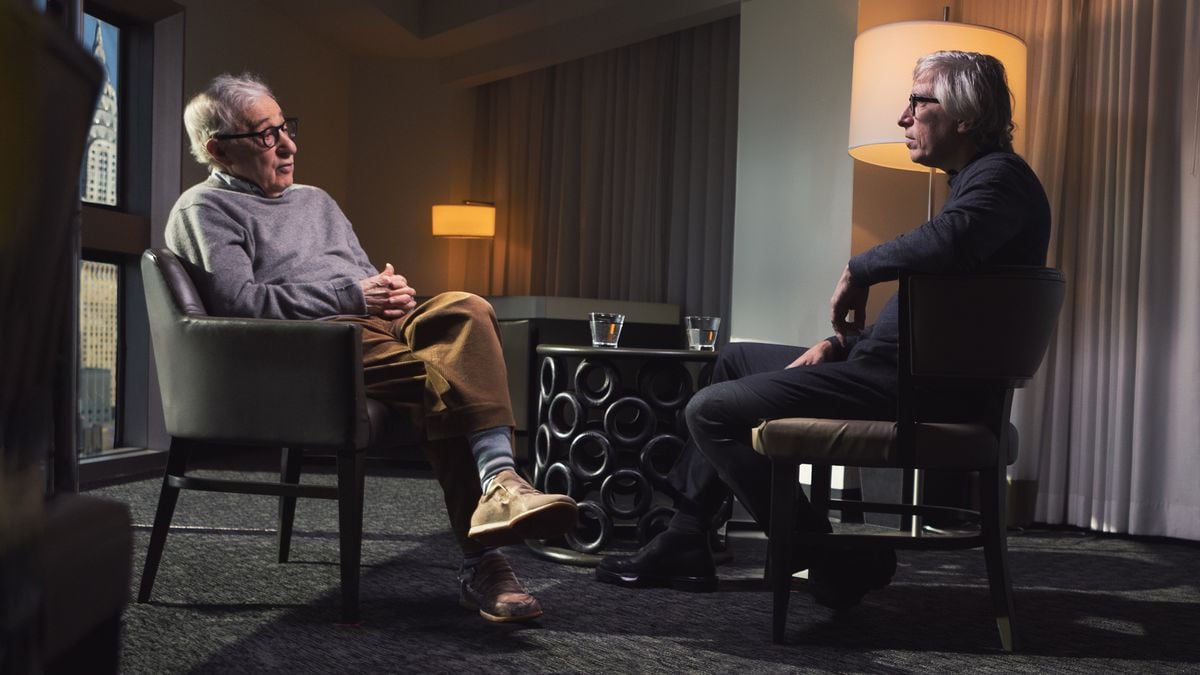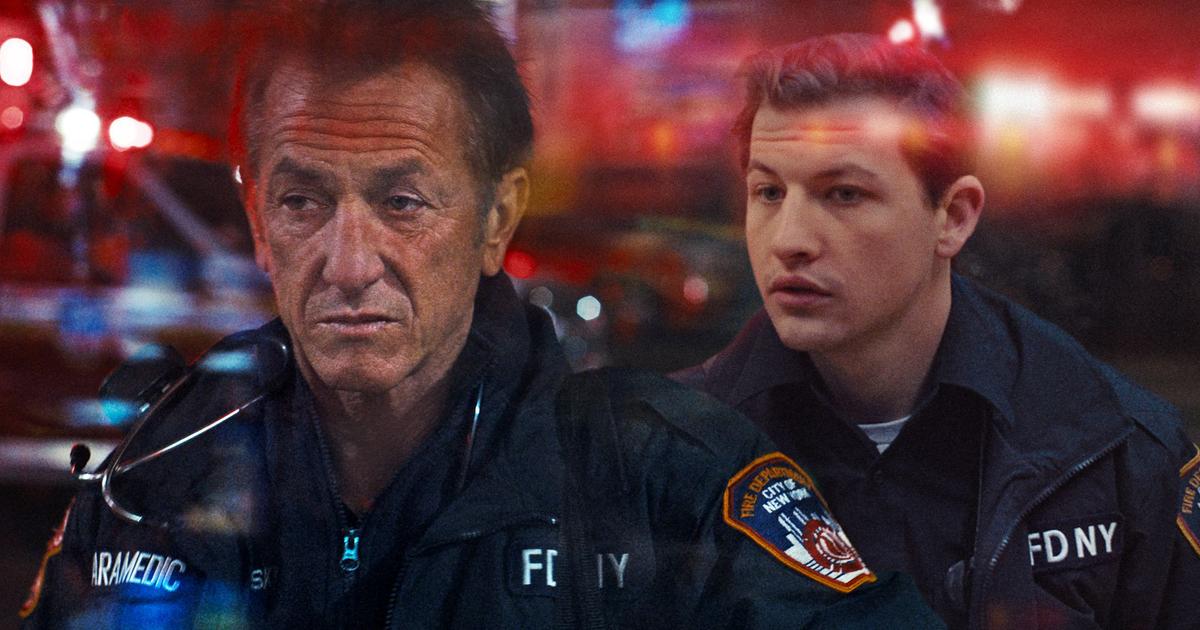Laurent Dandrieu is editor-in-chief at Current Values. He notably published Woody Allen, portait d'un antimoderne (CNRS Éditions, 2010) and Dictionnaire passionate about cinema (Éditions de l'Homme Nouveau, 2013).
First of all, it is worth remembering what is likely to be forgotten, drowned in the media turmoil: Woody Allen is a huge filmmaker, one of the most important of the last fifty years. The director of Stardust Memories and La Rose pourpre du Caire , Match Point and Blue Jasmine is one of the most formidable satirists of our late modernity, its neuroses, its paralyzing obsession with self-analysis, its hedonistic stupefaction , her cult of vulgarity, the way she happily tramples on the rights of intelligence, her leveling down, the emptiness of her materialism, the way she sacrificed love to sex and to passion. The filmmaker of Annie Hall or Hannah and her sisters is also a marvelous apologist for the power of the art of healing life's wounds, and also, which weirdly our obsessed era of feminist postures does not seem to know. willingly, one of the most passionate singers of women, the only possible way for him to infinity and " God's response to Job " (as he says in Manhattan ), ineffable and sublime proof that creation n is not as missed as you might think in times of despondency or despair. Woody Allen is a hilarious and anxious scrutinizer of the chaos in which modern man finds himself plunged by his desire to no longer submit to the gaze of God, as this agnostic has masterfully demonstrated in Crimes and Offenses. cruel and relevant that it is also him that he flogged through the time, whose man he is in real life often shares the mistakes and the vices.
Woody Allen is a moralist all the more cruel and relevant because it is also him that he flogged through the time.Because, of course, moralist, Woody Allen is nonetheless a sinner, with his weaknesses and his indignities. Weaknesses and indignities that the Manichaeism of the time would like to conceal everything, as if the man were monstrous enough to erase the artist, so that we had to silence him. His films are no longer distributed in the United States, the Amazon studio having broken the contract which linked him to the filmmaker, and the group Hachette, which had finally agreed to publish his memoirs after a number of major American publishers refused to take this risk. , turned around in front of the protest of a part of its employees and especially one of its star authors, Ronan Farrow, "faller" of Weinstein thanks to his journalistic investigations and at war for years with his father Woody Allen, of whom he is the only biological child.
What do we blame Woody Allen for? First to have had sex with a young woman 35 years younger (which he married later and who is still his wife), even when he was in a relationship with her mother, Mia Farrow (contrary to what unscrupulous journalists regularly write, Woody Allen therefore married the adopted daughter of his ex-partner, and not his own adopted daughter, which would have added to the immorality of the thing an illegality blatant). It is obviously a morally unpleasant, even repugnant, conduct; but not being illegal and having taken place between consenting adults, we are entitled to consider that it is a case which concerns only the persons concerned, even if it throws an unflattering light on the private man Woody Allen. But the most serious accusation is not that one. It was born in the wake of the particularly stormy separation, one suspects, which ensued between Woody Allen and Mia Farrow.
In this dysfunctional family, things are visibly more complicated than the simplicity of the time, which claims a culprit - preferably male - and a victim.It was in the middle of a legal battle for the custody of their children, in 1992, that Mia Farrow accused her ex-companion of sexual touching on the person of their adopted daughter, Dylan, then aged 7 years. Woody Allen has always denied the facts, blaming Mia Farrow for her resentment. If Ronan will take his mother's side against his father, the press always fails to report that another adopted son of Woody and Mia, Moses Farrow, defended Allen and accused his mother of having manipulated his sister Dylan "Out of hatred for his father" - Moses posted on his blog an extremely detailed account of the affair in which he explains why, according to him, Woody Allen's attack on Dylan cannot have taken place materially, but also describes the ill-treatment of his brothers and sisters as he did by Mia Farrow. In this dysfunctional family, things are visibly more complicated than the simplicity of the time, which claims a culprit and a victim - the culprit being preferably male.
After a thorough investigation, the American justice refused to prosecute Woody Allen while judging his conduct "inappropriate", the social services of New York having concluded that there was no sexual abuse on Dylan. The case ended in a restriction of the filmmaker's visiting rights with regard to his children. Since the last court intervention in the case in 1995, no further charges have been laid against the filmmaker; and it is only because Dylan and Ronan Farrow seized the context of #MeToo to put the accusation against their father in full media light that it reappeared, without there being the least new element since justice has closed the case. In defending Woody Allen, therefore, it is not a matter of claiming that his talent would place him above justice. On the contrary, it is a matter of remembering that being subject to justice also means enjoying the right to be found innocent; that an artist, like others, has the right to the protection of justice and to the presumption of innocence; and that suffering, anger and indignation do not give all rights and place no one above justice either.
Being subject to justice also means enjoying the right to be found innocent. And an artist has, like the others, the right to the protection of justice and to the presumption of innocence.Everyone is obviously free to think, knowing nothing more about this case than what the American justice system has had to know about it, that it was wrong. Everyone has the right to think that Woody Allen's private life is disgusting and that the filmmaker is a bastard. The fact remains that, in the eyes of justice, he is an innocent man. The amalgamation with Roman Polanski, condemned by the American justice after having been accused of rape on a 13 year old child and who partially acknowledged the facts, and in addition accused of rape and sexual assault by several minor women at the time of the facts, is therefore completely untrue. As Woody Allen said in an interview for the release of his latest film, "I was once accused in my life by one person. "There was a serious investigation by two judges who together concluded that it made no sense." Which does not prevent, on social networks, people who are completely ignorant of the affair from describing him as a serial pedophile who "sodomizes toddlers" ...
Wanting to deprive someone whose justice has deemed them innocent of the right to have their word heard, while their accusers are free to continue accusing them of what they deny having committed, is not only an injustice blatantly, it is a frightening decline in our freedoms. If the court of public opinion is granted the right to decide, on subjective and fluctuating moral criteria, who has the right to speak or not, who does not see that one sets in motion a gear which can only inexorably crush, retreat after retreat, commercial cowardice of a publisher too cautious after commercial cowardice, the fundamental right to freedom of speech? Many have reacted to Hachette's retreat with a shrug, either that they say that Woody Allen has only to self-meditate, or that they think, out of antipathy for the character, that it is good made for him. Rather than these short-sighted reactions, Stephen King's lucidity is preferred when he writes: “Hachette's decision to drop Woody Allen makes me very uncomfortable. It's not him, I don't care about Mr. Allen. What worries me is who will be muzzled next time. ”
If we do not resist this slope, will we soon come to trial, in the trials, to forbid the accused to defend themselves, on the pretext that their word would offend the victims?Ronan Farrow said Hachette's initial decision to publish Woody Allen was a testament to " lack of compassion for victims of sexual assault" . But the essential compassion for the victims cannot justify trampling on freedom of expression and justice, ignoring the right of the accused to make their views heard, and even more so when they have been cleared of the charges. brought against them. If we do not resist this trend, will we soon come to trial, in trials, to forbid the accused to defend themselves, on the pretext that their word would offend the victims? It is to this denial of the rule of law that the censorship of which Woody Allen is a victim opens the door.



/cloudfront-eu-central-1.images.arcpublishing.com/prisa/YNQTDG2JGZEMVFHMYQM3UJ7FU4.jpg)
/cloudfront-eu-central-1.images.arcpublishing.com/prisa/OMJAPDWL3LJ25DTNVISYZOUYII.jpg)




